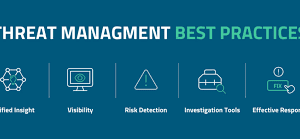Transaction management is a critical aspect of financial control for businesses of all sizes. It involves overseeing and optimizing the various financial transactions that occur within an organization, from accounts payable and receivable to expense management and reconciliation. In this comprehensive guide, we will explore the importance of transaction management and provide strategies to master this essential component of financial control.
The Significance of Transaction Management
- Accuracy and Accountability
Transaction management ensures that financial records are accurate and accountable. Properly recorded transactions provide a reliable foundation for financial reporting and decision-making.
- Cost Control
Effective transaction management helps control costs by minimizing errors, reducing inefficiencies, and preventing fraudulent or unauthorized transactions.
- Cash Flow Management
Managing transactions is central to cash flow management. Timely invoicing, accounts receivable management, and expense control all contribute to healthy cash flow.
Strategies for Effective Transaction Management
- Automation and Integration
Implementing automated transaction management systems and integrating them with accounting software streamlines processes and reduces manual data entry. This minimizes errors and accelerates transaction processing.
- Real-time Monitoring
Real-time transaction monitoring enables businesses to track financial activities as they occur. This provides immediate insights into cash flow, allows for early detection of issues, and supports proactive decision-making.
- Expense Management Tools
Leveraging expense management software can help control costs by providing a centralized platform for tracking expenses, categorizing spending, and enforcing expense policies.
- Standardization of Processes
Standardizing transaction processes ensures consistency and reduces the risk of errors. Create clear, documented procedures for tasks like invoice approval, payment processing, and reconciliation.
- Vendor and Supplier Management
Effective vendor and supplier management can improve transaction efficiency. Negotiate favorable terms, establish clear payment terms, and maintain open communication with suppliers.
- Data Analytics
Use data analytics to gain insights into transaction patterns, identify anomalies, and optimize financial processes. Analytics can also help identify cost-saving opportunities.
Challenges in Transaction Management
- Complexity of Transactions
In today’s business environment, transactions can be complex and involve multiple parties, currencies, and payment methods. Managing these complexities requires advanced tools and expertise.
- Data Security
Ensuring the security of sensitive financial data is a constant challenge. Transaction management systems must have robust security measures to protect against data breaches and cyberattacks.
- Regulatory Compliance
Staying compliant with ever-evolving financial regulations is a challenge for transaction management. Non-compliance can lead to legal and financial repercussions.
Conclusion
Transaction management is a fundamental aspect of effective financial control. By adopting strategies such as automation, real-time monitoring, expense management tools, process standardization, vendor management, and data analytics, businesses can optimize transaction processes, improve accuracy, and control costs.
Mastering transaction management not only ensures the accuracy and reliability of financial records but also supports overall financial control, cash flow management, and strategic decision-making. As businesses continue to navigate the complexities of the modern financial landscape, transaction management remains a key pillar of financial success.
Strategies like automation, real-time monitoring, standardized processes, vendor management, and data analytics optimize transactions. Challenges include complex transactions, data security, and regulatory compliance. Mastering transaction management is vital for accurate records, cost control, and informed decision-making in today’s business landscape.





























